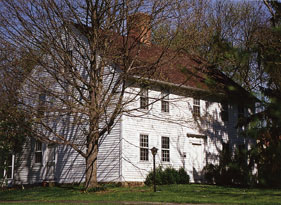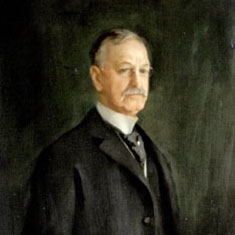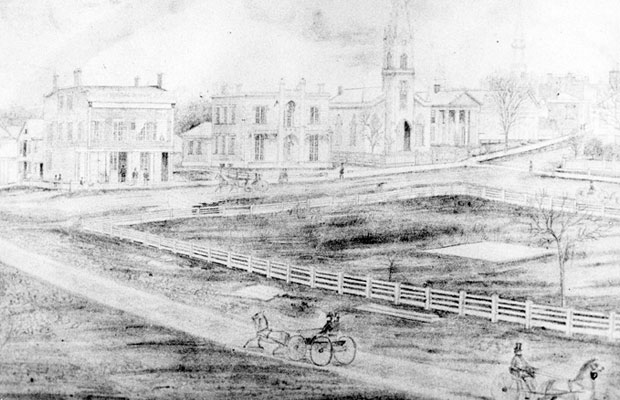NEXT MEETING: Thurs, April 10, 7:00pm at Barlow Community Center. Award-winning Hudson Author Joyce Dyer, brings new perspective to life of John Brown.
A Brief History of Hudson

Two ambitious men and well-timed doses of prosperity and poverty produced and preserved the Hudson you see today.
David Hudson of Goshen, Connecticut, dreamed of founding “an altar to God in the wilderness.” In 1799, he led a group of settlers to the township which he had purchased from the Connecticut Land Company. In 1802, he founded a Congregational church in town. By 1826, from his home at 318 North Main Street, he could see the first building of Western Reserve College, referred to as the Yale of the West.
Religious freedom and the abolition of slavery were important to Hudson’s early New England settlers. The Underground Railroad had active stations here and the college was a center of abolitionist debate. John Brown, of Harper’s Ferry notoriety, grew up in Hudson.
Hudson blossomed during the 1840s with intellectual fervor and railroad fever. In the last half of the century, a series of events – the failure of railroad investments, the 1882 departure of the college for Cleveland, and a terrible fire on Main Street in 1892 – sent the town into economic decline.

Millionaire landowner and railroad pioneer James W. Ellsworth revitalized Hudson after a mild depression hit the Western Reserve. Returning to his hometown in 1907, he planned a model community with electric, water and wastewater plants, paved streets lined with elm trees and underground utility lines. He also restored the derelict college buildings, reopening them as Western Reserve Academy.
After Ellsworth retired to Italy, development slowed during the Depression and Hudson remained a small village and rural township until construction of the Ohio Turnpike in the 1950s made it more accessible. An attempt in 1962 to demolish the 1839 Brewster Store at 5 Aurora Street galvanized citizen efforts to preserve the character of the town and led to the establishment of Hudson Heritage Association. In 1994, Hudson Township and Hudson Village merged to form one government for the area David Hudson had purchased nearly two centuries earlier.
